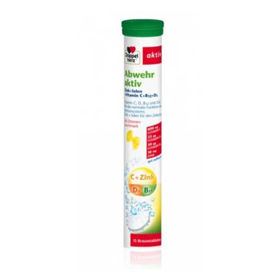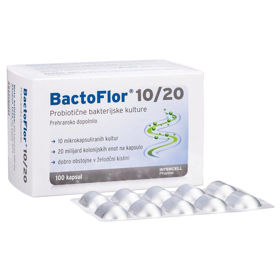Customer question:
How long does a stomach virus last? Anonymous customer's question
Pharmacist's answer:
The duration of a stomach virus (gastroenteritis) can vary depending on the cause and individual factors. Stomach flu is usually caused by viruses such as norovirus or rotavirus but occasionally by bacteria or parasites.
Viruses cause most cases of stomach flu and often go away within a few days to a week. Duration can vary, but it is common for symptoms to begin to improve within 1 to 3 days. In some cases, mild symptoms may last up to a week, but in more severe cases, they may last longer.
Bacterial causes of gastroenteritis, such as certain strains of E. coli or Salmonella, can cause longer-lasting symptoms. In these cases, symptoms can last from a few days to a few weeks.
Parasitic infections such as Giardia or Cryptosporidium infections can cause persistent symptoms that can last for weeks or even longer, especially if not adequately treated. It is important to note that although acute symptoms may resolve within these time frames, some people may experience mild digestive discomfort, fatigue, or changes in bowel habits for some time after the acute phase.
Recovery from stomach flu depends on several factors, primarily the pathogen that causes the illness, the general health of the individual, and how well you stay hydrated during the illness. The primary goals during recovery from stomach flu are to stay hydrated, rest, and avoid foods or drinks that could further irritate the stomach.
If the symptoms last for a long time, worsen, or are severe, it is recommended to seek medical help. Dehydration is a concern with gastroenteritis, so it's essential to seek immediate medical attention if you or someone you know is suffering from severe vomiting and diarrhea or may be unable to keep fluids down. Your doctor can provide and explain disease management guidelines and, if necessary, recommend treatment options.
What are the first symptoms of a stomach virus?
The main symptom of the stomach virus is diarrhea. When the gastrointestinal tract becomes infected, many virus activities cause diarrhea. The malabsorption that usually follows occurs due to the destruction of intestinal cells called enterocytes. The virus can interfere with water reabsorption and cause secretory diarrhea, responsible for loose stools.
Other symptoms include:
- abdominal pains
- nausea and vomiting
- chills or sweating
- elevated temperature
- joint stiffness or muscle pain
- poor appetite
- weight loss
How long does the treatment of stomach virus take?
Duration of treatment may vary depending on the cause and severity of the disease. Gastroenteritis is usually a self-limiting condition, and most cases can be treated at home. The main goals of treatment are to relieve symptoms and prevent dehydration.
Here is a general overview of how long treatment can take:
- Self-limiting nature: Many cases of viral gastroenteritis, the most common cause of stomach flu, resolve independently without requiring specific treatment. Symptoms often begin to improve within a few days.
- Symptom management: The duration of treatment can be from a few days to a week, during which time you will focus on symptom management. This includes rest, hydration, and avoiding foods or drinks that worsen symptoms.
- Antibiotics: If bacteria cause your gastroenteritis, your doctor may prescribe antibiotics. In this case, the duration of treatment will depend on the specific bacteria and the antibiotics prescribed. Antibiotics are usually taken for a few days to a few weeks. Be sure to complete the course of antibiotics as prescribed, even if your symptoms improve before you finish treatment.
- Parasitic gastroenteritis: Parasitic infections such as Giardia or Cryptosporidium may require specific antiparasitic medications. The duration of treatment can vary but usually involves taking the prescribed medication from a few days to a few weeks.
- Recovery and monitoring: after the acute phase, it may take some additional time for your digestive system to recover fully. Some individuals may experience lingering symptoms or changes in bowel habits for some time after the acute illness. The recovery can last from a few days to a few weeks, depending on the individual and the specific cause of the disease.
You must keep in touch with your doctor if you have severe symptoms, symptoms that are getting worse, or if you are at risk of dehydration. Suppose you or someone you know is experiencing symptoms of a stomach virus, especially if there is concern about dehydration. In that case, it is a good idea to see a doctor for proper evaluation and treatment recommendations.
Interesting reading: Stomach virus - what to eat?













